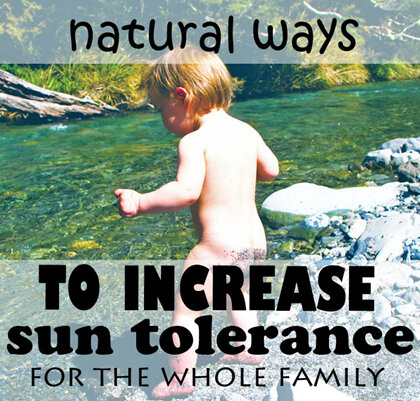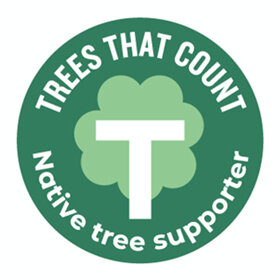
Summer is here! And boy would I love to spend my entire days outside. In the garden, feeling the warm soil between my toes, at the beach, hiking up a mountain…. Ahhh. And I know my daughter would love to be doing the same all summer long!
But of course all that beautiful warmth comes from the sun, which can also give us some pretty nasty sunburn if we’re not careful. But did you know that there are natural ways in which you can increase you & your family’s tolerance to the sun?
Here are some tips to keep the sunburn away this summer, even for the fairest skinned out there!
1. Eat lots of fish.
Fish is rich in Omega 3’s, and did you know that this can actually help prevent sunburn?! So instead of sausages, throw some fish on the barbie this summer!
2. Good ol’ Vitamin D
Where does vitamin D come from? Ironically, a major source is from the sun. However you can also get it from mushrooms, cheese, eggs, and fish – especially salmon!
Vitamin D is great not only at preventing sunburn in the first place, but can also help heal your sunburn faster.
3. Gradually expose yourself to the sun.
I know as a teenager, when I went out to the beach, I always wanted to get a tan, as fast as possible, with as little work possible. So I’d go out to the beach and spend the entire day sunbathing with minimal sunscreen. But oh boy did that often result in sunburn…
We shouldn’t hide from the sun altogether all summer long; especially given it is such an important vitamin D source! Everyday spend a bit of time outside. This will gradually increase your tolerance, rather than just one day suddenly being caught outside longer than you expect, and getting sunburnt!
4. Get those antioxidants!
Antioxidants help fight inflammation and sunburn is an inflammatory response in the body.
And for the same reasons, avoiding foods are inflammatory can help you avoid sunburn. Inflammatory foods include processed foods, sugar, and vegetable oils.
But your summer diet doesn’t have to be all kale & fish – berries, dark chocolate & red wine are also packed with antioxidants!
5. The power of Astaxanthin
Astaxanthin has been shown to act as an ‘internal sunscreen’. It’s to re plants & animals what chlorophyll is to green plants & vegetables. All the more reason to ‘eat a rainbow’!
I experimented with giving astaxanthin in supplement form from the health shop to my husband who is very pale & burns very easily – and we’ve had good results so far with him being able to stay out longer, even if we forgot to take the sunscreen with us! I’d just avoid giving the supplement form to children.
6. Slop on some natural sunscreen

Non-Nano Zinc Oxide is the only recommended safe broad spectrum sun protection. And non-natural sunscreens contain many harmful chemicals, which can actually get in the way of your body’s natural response to the sun, and block vitamin D production.
So when you are going to be outside for long periods of time, cover up in a hat and long clothing, and slop on some sunscreen that you know is good for your skin everywhere else!
Skin-loving, insect repelling, baby-safe natural outdoor protection that's good for your skin. Safe for the whole family to use!
A great gift for anyone who loves spending time outdoors.
Our extra strong sunscreen that's still gentle enough for babies! Lab tested to well over 50+!
So get out there & enjoy your summer!
https://www.ncbi.nlm.nih.gov/pubmed/7561154 Dietary fish oil reduces basal and ultraviolet B-generated PGE2 levels in skin and increases the threshold to provocation of polymorphic light eruption.
https://www.sciencedirect.com/science/article/pii/S0022202X17315580 Oral Vitamin D Rapidly Attenuates Inflammation from Sunburn: An Interventional Study
https://www.ncbi.nlm.nih.gov/pubmed/20219323 Astaxanthin attenuates the UVA-induced up-regulation of matrix-metalloproteinase-1 and skin fibroblast elastase in human dermal fibroblasts.
This blog post is not intended as medical advice. See your medical practitioner if you have any questions or concerns.
